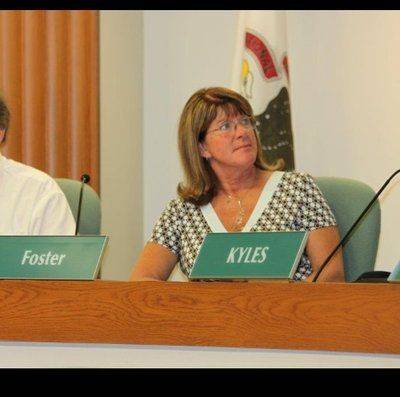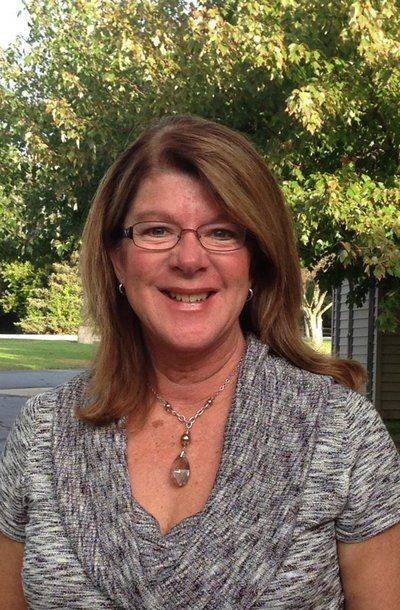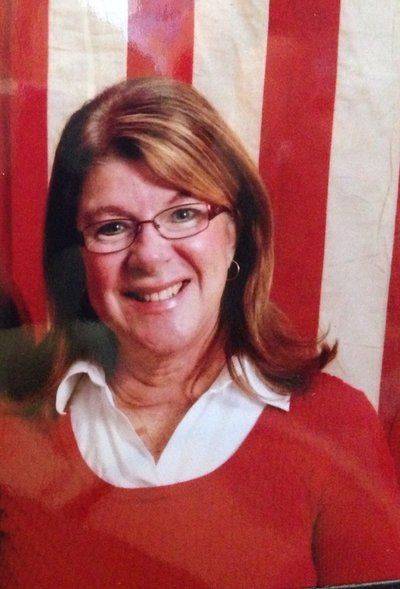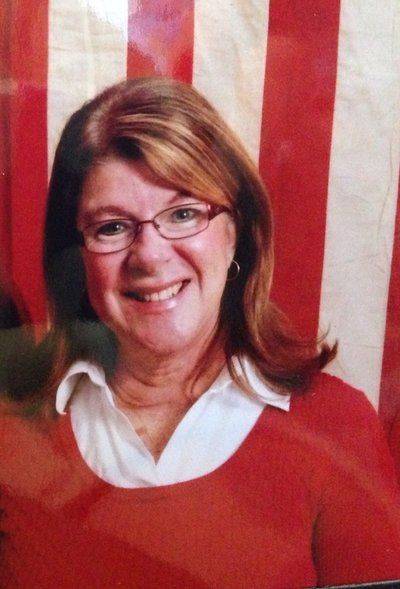 Karen Foster, who was born and raised locally, has been on the Champaign City Council since 2007. As an at-large councilmember, she stays involved in issues around the city. She suggested meeting at Kopi Café to chat with me about her experiences with local politics during her time on the the Champaign Council.
Karen Foster, who was born and raised locally, has been on the Champaign City Council since 2007. As an at-large councilmember, she stays involved in issues around the city. She suggested meeting at Kopi Café to chat with me about her experiences with local politics during her time on the the Champaign Council.
Question 1.
SP: What’s your relationship to Champaign?
Foster: I was born in Burham Hospital. As I was growing up, I went through the entire Unit 4 school system. I went to college at Eastern Illinois University, where I studied education. Then I moved back to Champaign and taught at Kenwood Elementary School. I taught 3rd grade for six years. Then Unit 4 had a budget crunch in 1983. I didn’t have tenure at the time, so I started working at my church, where I began a preschool. I was there for seven years. Then I went to Champaign County Nursing Home and opened an intergenerational childcare center for employees. I was there for 16 years. Then I went back to the preschool, and that’s where I’ve been for the last 8 years. In the meantime, I went back to Eastern and got a Master’s degree in Guidance and Counseling, so I’m also a certified counselor.
Question 2.
SP: Were there moments during your upbringing that you think led you to becoming involved in local politics?
Foster: My earliest political memory was when I was in 5th grade, when Kennedy and Nixon were running against each other. My family is Republican, but some of my mother’s family members are Democrats. I can remember the discussions… We would tease back in forth, though it was just friendly teasing.
In college, I became somewhat involved in politics in a governor’s race. Governor Olgilvie had a group on campus, and I attended some of those functions.
But when I worked at Champaign County Nursing Home, I really became interested in local politics. We had to keep up with the County Board because they were our boss.
When I left the nursing home in 2006, there was an opening on the Champaign City Council. I applied for that opening and didn’t get it. But then the mayor at the time, Mayor Schweighart, suggested I run for City Council. I had taught his son at Kenwood School. I loved the County Board, so I thought serving on City Council would be a good fit for me. And it has been.
 Question 3.
Question 3.
SP: Who were your political heroes?
Foster: Dan Rutherford comes to mind. He’s running for governor. I met in 2008. His style of governance is what I like to do. I like to know people and to be with as many people as possible before making my decisions, and it seems like that’s how he likes to campaign and govern.
When I’m invited to functions and neighborhood meetings, I try to go to as many as I can. Because I’m an at-large council member, I try to spend a lot of time listening to people’s views around the community.
In addition to going to meetings, I like to be out and about, even if it’s just going to the Esquire or to a restaurant to chat with people. I don’t think people feel intimidated to go and talk to me, and people feel more comfortable sharing their opinions when they see me in casual settings.
I always try to be open to others. I try to hear other opinions and keep an open mind.
Question 4.
SP: When did you first decide to be part of C-U leadership and why?
Foster: It was just general involvement. Nothing in particular. I would have really liked to be on the County Board because I felt that the nursing home really needed attention. But, when I joined the City Council, I turned my attention to the city.
The public smoking ban was a big issue at the time. It had already been banned in restaurants before I came on the Council, and then the Council wanted to bring the issue back. I felt it was the business owner’s right to choose whether they want to have smoking or not, and then a patron can decide to go to that restaurant or bar.
My general philosophy is less government and giving people the right to choose, within the law.
That’s the same stance I took on the chicken issue. In the beginning, I was still opposed. Then, a resident who was knowledgeable about chickens that are already in our town shared her views with me, and my mind was changed. I couldn’t find the right to not oppose them, and I want to let the property owner choose whether to have chickens or not. I think I’m staying consistent with my general philosophy of less government and letting people choose, within the law.
That’s a major premise to my whole reason for being on council: finding both sides of an issue, talking about it, listening, and then making a decision that I hope is in the best interests of the most people. Of course, not everyone will agree with me.
Question 5.
SP: Besides the public smoking ban and the chicken issue, what are the issues that have most captured your attention during your time in the Champaign City Council?
Foster: I’m very passionate about the storm water issue, which involves the lack of sufficient infrastructure that has been going on since 1950. I was on the Storm Water Utility Fee Advisory Board, and we studied this issue for 2 years. It was brought to our attention that flooding and storm water issues have been going on since the 1950s. The councils since 1950s have kicked the can down the road, and it had to stop. With the help of Public Works, and after studying what a utility fee would look like, I thought a fee was equitable. There are places all through the town, especially on Washington, East Washington, and John Streets, that need attention. The fee will be used for a variety of things, mostly underground infrastructure so we can take care of flooding issues.
We will generate about $2 million a year from this fee, and there are projects we can use that money on for many years. These projects take a lot of money and a lot of time, especially because of the engineering and construction involved.
That’s what’s most fun about council: finding out how these projects work.
The other issue that I’m very passionate about is public safety. I’ve been working closely to support our police department and their needs. Because of the issues the city has been experiencing with shootings in the last couple years, I felt that the department needed to have the officers reinstated that we had to cut over the past 3-4 years. Because of my strong support, I asked for the quarter percent sales tax increase, which took sales tax up to 9% in our city. That was not a popular decision, so I had to think about what was good for the city versus raising a tax, especially since we’d just added a utility fee.
Question 6.
SP: A large number of people in C-U move here for a short period of time through their connections to the university. What’s your relationship to the university? And do you see C-U as a transient community?
Foster: I want the city to be the best it can be all the time for all of our residents. I sit on the Champaign City Partnership, which includes all parts of town, so I have a feel for what Campustown is doing in terms of businesses. I try to keep Campustown vibrant. I think it’s an important part of our community.
Unofficial is also very important to me. I go to Campustown every Unofficial from about noon to 4 or 5 to talk to the police and bar owners, so I can see for myself what’s going on and form my own opinions. I want to make Unofficial as safe as possible.
Campustown is actually at the forefront of the Council’s mind recently because of the development happening there. I don’t think in terms of this being a transient community. I think of it as us providing the city for whoever is here. We provide the bones of the city.
Question 7.
SP: What business or public places in C-U do you really enjoy?
Foster: There are so many. I love the Boneyard. And I love coming downtown. I could hang out here all the time. I do a lot already!
I love how we have diverse restaurants and bars. I enjoy eating down here and bringing people down here, especially to Seven Saints. Seven Saints, hands down, is my favorite restaurant. But the one I go to the most is the Esquire. I love peanuts, and I love beer, so that place is perfect for me.
I love also outdoor cafes and being able to eat and drink outside, and love how downtown has developed in that way. A few years ago the Council allowed there to be more outdoor seating, and I’m glad to have been a part of that.
Oh, and live music. I love live music.
Question 8.
SP: What did you think of the recent efforts to pass a conceal and carry law in our state?
Foster: It’s okay to me. I don’t own a gun, but I’m not opposed to buying one. I’ve talked to some police officers, and they don’t seem to have a problem with it. Also, I support the Second Amendment.
Question 9.
SP: If someone in the Illinois state senate were to sponsor a bill to repeal Roe v. Wade in our state, would you support it? Why or why not?
Foster: At this time, no. Personally, I don’t think I would have an abortion. I see both sides of the issue. But I’m leaning more pro-choice than pro-life. I think that’s the age I grew up in… the 60s.
Does that create tension in terms of being a Republican?
There are a few issues on which I’m more moderate than totally conservative. It’s more a personal philosophy for me. I do support less government, but in the ways I support it, it’s always issue by issue. I don’t support all Republican ideals. I think people who know me in the local party know that’s how I am.

Question 10.
SP: It’s always interesting to me to hear people describe themselves as in favor of less government when they are in the government. What’s it like to inhabit that position? Do you see that as a conflict?
Foster: To me, being part of an elected body that makes decisions gives me the latitude to decide whether I want to have government be more or less involved in people’s lives. It gives me the choice. I’m the one who has the vote. So I don’t see it as conflict.
I see it as every vote that I make is going to possibly impact someone in some way or another. Do I want my vote to be for higher taxes, or more government? Or do I want it to be in favor of allowing chickens in the backyard? That’s less government. I see it as an issue-by-issue thing. My general philosophy is less government, and that’s usually how I vote, but that’s not how it is every time. So I don’t see it as a conflict, but as an opportunity do what I feel is best for the most people.
Question 11.
SP: In terms of education, what do you think of charter schools, vouchers, and private schools?
Foster: I’m a big public school proponent. If people want their children to go to private schools, that’s fine with me. But I feel strongly that we should keep public schools excellent.
Question 12.
SP: What are your views on same-sex marriage?
Foster: It is important to those who wish to be married in same-sex marriages. I feel that they should receive benefits that are afforded traditional marriage unions. Civil unions provided those benefits in some instances, but to insure all benefits are given then I have no problem with marriage. Two people who love and want to commit to each other deserve happiness, if marriage vows accomplish those goals.
Question 13.
SP: What national political issue do you think is most important? And what current local issue?
Foster: In terms of local issues, pensions, hands down. These are huge issues for the city. It’s a huge chunk of money. Pensions make up 50% of our operating budget. The city was mandated by the legislature to pay these pensions. Previous councils thought that we needed to have our pension obligations in place in 2020, whereas the law states that this needs to take place by 2030. So there’s now a crunch coming, and I want to explore options, which could include extending our pension obligation bond payments to 2030. That could save us some millions. By 2016 or 2017, we’re going to be in the negative, and I want to find ways to avoid that.
If we have financial plans going forward, then we can make some decisions. I don’t want to not support pensions, but we want to meet our obligations.
In terms of national issues, the main one is health care. That issue has affected my family personally: my husband is not retiring because we don’t know what’s happening with health care. People are unsure what’s happening, and everyone is affected by it.
People with preexisting conditions should get health insurance, and so should people who are uninsured or underinsured. But I don’t know how to fix health care. I don’t think I agree with people who would cut it out and start again, since it’s law now. But it may need to be changed. I would rather have had all aspects of the healthcare law brought to light before it was launched. At the local level, we don’t make law until we have everything in place, so from an elected official’s point of view, I see the flaws in the process of this law.
Question 14.
SP: How do you think C-U is changing as a community?
Foster: It’s changing in so many positive ways. People seem happier, especially about the changes that have been happening downtown.
People aren’t coming to council with as many negative things to say. For instance, this spring, a woman came to council and said that even though there was a one-inch rain, she didn’t have to run home worried that her basement was going to flood. That makes me think we’ve improved things for the community.
Another thing that happened was a panel discussion I was part of about the chicken issue. There were 30 or 40 people there who said they couldn’t wait to have chickens in their yards.
We’ve also made positive changes in terms of diverse hirings in government and becoming more inclusive, especially toward the African-American community.n.
Those changes are making a more positive Champaign.
Question 15.
SP: And how do you see a more positive Champaign differing from Urbana?
Foster: The two cities have their own identities and their own communities, even though there are ways we can work together.
There are huge differences between the two. Big philosophical differences. Urbana thinks the more government, the better. They’re very nice people, but as far as philosophy goes, they’re on the other side. There are some things that are the same between the two cities, in terms of recent tax increases and public safety, for example.
The Champaign City Partnership supports more local businesses, but here in Champaign we also have big businesses, like Kraft. We have the more blue collar industries in our town. And we also have research park, and Yahoo. We have to do what we can to keep them here and not move to Chicago.
There are big differneces between the two cities. For instance, when I was in 6th grade, my folks wanted to either build a house in Urbana or building onto our home in Champaign. My brother, sister and I all told them we’re not moving to Urbana.
But then I married a man from Urbana.
SP: Does that create tensions?
Foster: Oh no. He was happy to move to Champaign.








